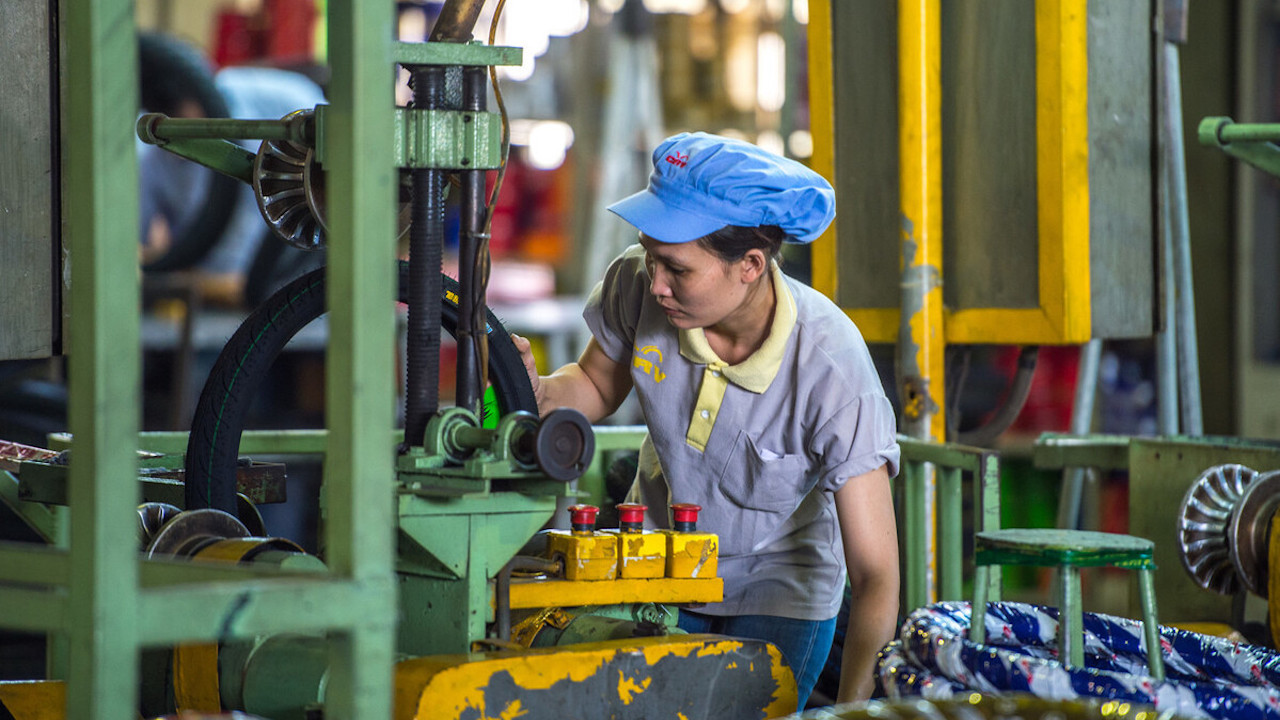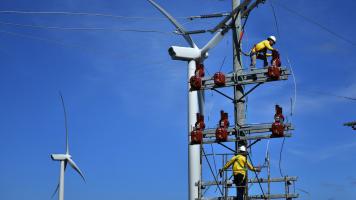
ASEAN manufacturers and exporters need to go green if they want to tap capital from institutional investors. Photo credit. ADB.
This would entail significant policy change, grant of incentives, and reskilling or upskilling of the region's workforce.
The participation of Association of Southeast Asian Nations (ASEAN) economies in global value chains (GVCs)—the cross-border networks that separate production stages from concept to consumption—is under threat, which could disrupt growth in the region and elsewhere, according to a new book published by the Asian Development Bank (ADB).
The book, ASEAN and Global Value Chains: Locking in Resilience and Sustainability, identified six risks confronting internationally shared production networks and value chains and their importance to recovery and sustained, more inclusive, and “green” growth:
- Problems accessing resources, intermediate inputs, and commodities important for both backward and forward GVC linkages—including policies and disruptions in cross-border logistics.
- Shortages of the new skills required along value chain segments.
- Difficulties in accessing sufficient, reasonably priced energy affected by both geopolitical disruptions and country commitments under the Paris Agreement
- Barriers to global and regional market access stemming from unilateral policies affecting trade and investment (including possible carbon taxes).
- Disregard for multilateral trading rules in favor of discretionary, power-based rules that create further fragmentation.
- Interruptions in financial flows, rising prices, and issues with debt financing.
During a fireside chat about the report during the fourth Southeast Asia Development Symposium (SEADS) held in March, ADB Director General and Sectors Group Chief-Designate Ramesh Subramaniam warned against ignoring these risks, noting the region’s participation in GVCs had helped Southeast Asia weather global shocks over the years.
By participating in GVCs, most ASEAN economies have grown strongly and reduced poverty. GVCs have also created a strong manufacturing and export base, more and better-quality jobs, and spread knowledge, innovation and technology.
Given threats posed by climate change, ASEAN needs to green its GVCs, said Subramaniam. He said ASEAN states need to look at each and every segment of each industry and examine how to address climate issues in any sector. This is a challenge as it would entail considerable private sector investments. “You need significant policy change. You need strong and enabling overall business environment where businesses, [and] private sector investments can thrive.”
Governments need to look at granting incentives with a sunset clause to encourage private sector investments in the green sector, said Subramaniam. A sunset clause voids the grant of incentives after a certain period and is typically used to prevent actors from going overboard in granting or availing of fiscal perks.
He said the push for the use of carbon border adjustment mechanism will compel ASEAN manufacturers and exporters to decarbonize. Such a mechanism, which the European Union recently adopted, aims to plug carbon leakage. It effectively imposes a tariff on all carbon-intensive goods entering the EU. “It [carbon border adjustment mechanism] will have huge implications for ASEAN manufacturers and exporters particularly when we are looking at GVCs.”
ASEAN manufacturers and exporters also need to go green if they want to tap capital from institutional investors. “Will private investors or institutional investors be willing to put money into dirty industry or industries that are not changing themselves to meet the growing global call [to decarbonize]? Clearly, that is not the case,” he said.
He said ASEAN also needs to invest in education, particularly in higher education, to reskill or upskill its workforce given the shortage of new skills required along value chain segments. “Reskilling or upskilling is going to be important for ASEAN to retain its share of GVCs in total trade as well as for economic growth.”

